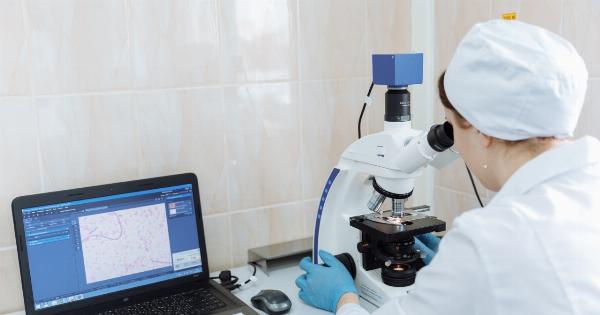Menopause is a natural phase in a woman’s life that marks the end of her reproductive years. It usually occurs between the ages of 45 and 55, and brings about significant hormonal changes in the body.
These changes can cause a wide range of symptoms, including hot flashes, night sweats, mood swings, weight gain, and decreased bone density.
While hormone replacement therapy (HRT) is a commonly used treatment for menopausal symptoms, many women are seeking alternative methods to alleviate their discomfort.
Exercise has been shown to be effective in reducing the severity and frequency of menopausal symptoms. In addition to its physical benefits, exercise also promotes emotional well-being, improves sleep, and helps maintain a healthy weight.
The Importance of Exercising During Menopause
Regular physical activity offers numerous benefits for women going through menopause. Firstly, exercise helps regulate hormonal imbalances by stimulating the production of endorphins, also known as “feel-good” hormones.
Endorphins can help improve mood, reduce anxiety and depression, and enhance overall well-being.
Exercise also aids in weight management, which is particularly important during menopause when many women experience weight gain. As estrogen levels decline, the body tends to store more fat, especially around the abdomen.
Engaging in regular exercise can help control weight and prevent the development of obesity-related health issues.
Furthermore, menopause is associated with a decline in bone density, increasing the risk of osteoporosis and fractures.
Weight-bearing exercises, such as walking, jogging, and strength training, help maintain bone density and reduce the risk of osteoporosis.
Three Exercises to Combat Menopausal Symptoms
1. Yoga and Pilates
Yoga and Pilates are excellent exercises for menopausal women as they focus on flexibility, strength, balance, and relaxation.
These low-impact exercises can help alleviate menopausal symptoms, such as hot flashes and mood swings, by reducing stress levels.
Yoga combines deep breathing, meditation, and gentle stretches to promote physical and mental well-being. It can also improve sleep quality, reduce muscle tension, and enhance overall body awareness.
Some specific yoga poses, like the forward fold, child’s pose, and reclining bound angle pose, target the pelvic area, which can help alleviate pelvic pain and discomfort often experienced during menopause.
Pilates focuses on core strength, flexibility, and control. It can help improve posture, strengthen abdominal muscles, and enhance overall body tone. Regular Pilates practice can also alleviate back pain, reduce stress, and improve sleep patterns.
Some Pilates exercises, such as the pelvic curl, spine stretch forward, and swan dive, can specifically target the lower back and pelvic floor muscles, which often weaken during menopause.
2. Cardiovascular Exercises
Engaging in cardiovascular exercises, such as brisk walking, jogging, swimming, or cycling, has multiple benefits for menopausal women.
These exercises increase heart rate and blood circulation, improving cardiovascular health and reducing the risk of heart disease.
Cardiovascular exercises also stimulate the release of endorphins, improving mood and reducing symptoms of anxiety and depression. Regular cardio workouts can boost energy levels, enhance mental clarity, and facilitate better sleep patterns.
For menopausal women, high-impact exercises like jumping jacks or running on concrete can be harsh on joints.
Instead, low-impact exercises such as swimming or using an elliptical machine can provide an effective cardio workout without placing excessive stress on the body.
3. Strength Training
Strength training exercises are crucial for maintaining muscle mass and bone density, both of which decline with age and the hormonal changes of menopause.
Regular strength training can help combat muscle loss, tone the body, and increase strength and stamina.
Strength training exercises can be performed using free weights, weight machines, resistance bands, or even by using your body weight for resistance.
Squats, lunges, bicep curls, push-ups, and tricep dips are all effective exercises that target multiple muscle groups.
By regularly engaging in strength training, menopausal women can improve their metabolism, control weight gain, and reduce the risk of chronic conditions such as heart disease, osteoporosis, and diabetes.
Conclusion
Menopause is a natural transition that brings about numerous changes in a woman’s body. While it can be accompanied by various uncomfortable symptoms, exercise has been proven to alleviate many of these physical and emotional challenges.
By incorporating yoga and Pilates into their routine, menopausal women can improve flexibility, strength, and overall well-being while reducing stress levels and managing symptoms.
Regular cardiovascular exercise not only improves heart health but also boosts mood, energy levels, and sleep quality. Finally, strength training helps maintain muscle mass and bone density, preventing age-related decline and reducing the risk of chronic diseases.
Incorporating these three types of exercise into a menopausal woman’s lifestyle can contribute to a healthier transition through this significant life stage.


























